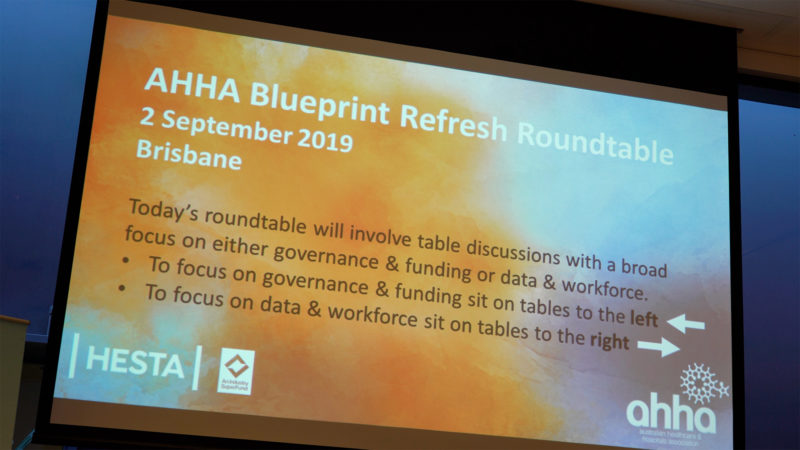COVID-19 has brought unprecedented focus on the Medical Technology, Biotechnology and Pharmaceutical (MTP) sector; highlighting the importance of research and development, new technologies and advancements to navigate human health challenges. This coupled, with the importance of sovereign capability and a robust supply chain to support the provision of essential MTP products. This has created unique opportunities to invigorate and invest for a stronger sector, which in 2019 supported 70,000 Australian Jobs and contributed more than $5B in Gross Value Added (GVA) to the Australian Economy.
As Australia’s growth centre for the sector, MTPConnect is responsible for delivering the $32M Researcher Exchange and Development within Industry (REDI) initiative, funded by the Medical Research Future Fund (MRFF). MTPConnect partners with research, training and industry organisations to increase skill levels and aid workforce development for the MTP sector nationally.
Skilled labour, in particular skilled in the manufacture of MTP products, namely competency in Good Manufacturing Practice (GMP), was identified as one of the key priorities, according to Jarrod Belcher, Director of the REDI Program at MTPConnect. Through a competitive process, MTPConnect selected additional industry training providers to deliver new programs addressing key skills gaps in the sector workforce.
Launched in September 2022, one of these programs is GMP Uplift developed by the Centre for Biopharmaceutical Excellence (CBE). CBE bring experience across large and small Biologics, Pharmaceuticals and Regenerative Medicine companies, both in consulting and GMP related enterprise training. CBE staff also have extensive experience in GMP operations, compliance, auditing and QMS design, a wide industry network for guest lecturers and readily available case studies.
In developing the training, CBE Director Steve Williams states, “The Federal Government took the initiative to commence this uplift program because they recognised that bringing manufacturing back into Australia was a national imperative. In order to do that, they needed to make sure that the human resources were available and were knowledgeable around compliance in GMP, to make us internationally competitive.”
CBE GMP Uplift Programs provide participants with a real-world perspective on Good Manufacturing Practice (GMP) and are designed to assist with the interpretation and application of GMP into practice, for those involved in human health products. CBE brings strong technical credentials, with experience across large and small Biologics, Pharmaceuticals and Regenerative Medicine companies, both in consulting and GMP related enterprise training. Collectively the CBE staff delivering the training; Steve Williams, Justine Mann, Maurice Parlane, Andrew Watson and Jeff Davies have over 200 years experience in GMP.
The CBE GMP Uplift training programs have been developed with the help of a consortia of associations; ARCS Australia, Translational Research Institute Australia (TRI T3 Cleanrooms), University of Technology Sydney (BIF UTS), Merck Life Sciences and CBE Pure Solutions. The program is available for entry level staff and for those with more than 12 months industry experience:
– Essential GMP Program designed for entry level employees (new starts up to 12 months). A 5-day equivalent course, designed for participant flexibility and to upskill in core GMP principles.
– Advanced GMP Program, for those working in a GMP role (12 months+) looking for an in depth understanding of the critical areas that underpin GMP compliance in practice.
Students who have taken training programs in September and October have commented favourably on the range of case studies, the depth of material, real world examples and hands on experience.
Interviews filmed at the BioProcessing Network Conference 2022, in Sydney.
You Might also like
-
Caring for community
With a passion for helping people, Carina Fernandes in her final year at Western Sydney University received accolades as a nursing student. Now a recent graduate, having completed her Bachelor of Nursing (Advanced) degree, and recognised as an Emerging Nurse Leader 2021 by the Australian College of Nursing, Carina has her sights set on her new role in healthcare, at the same time keeping sustainability top of mind.
-
Australian Healthcare and Hospitals Association Hospitals and Clinics New Content Value-Based Health Care
Australian Healthcare and Hospitals Association (AHHA) Blueprint Refresh Roundtable
AHHA’s Blueprint Refresh Roundtable brings together AHHA members and other Australian health leaders to evaluate the progress made to date against Healthy people, healthy systems and to tease out key policy issues that need to be addressed in order to implement outcomes-focused, value-based care in Australia.
-
Prioritising Oral Health in Aged Care and Disability Support
Leonie Short is a Dental Practitioner and Dental Therapist. She started working as a dental therapist in Rural NSW and then moved into being an academic and researcher. Through her career, Leonie has worked at 6 universities across New South Wales and Queensland, and remaining community focused.
Leonie’s mission is to have improved oral health experiences and outcomes, however she recognises, the health system really needs to work hard to make it happen and for people to understand why it needs to be a priority.



